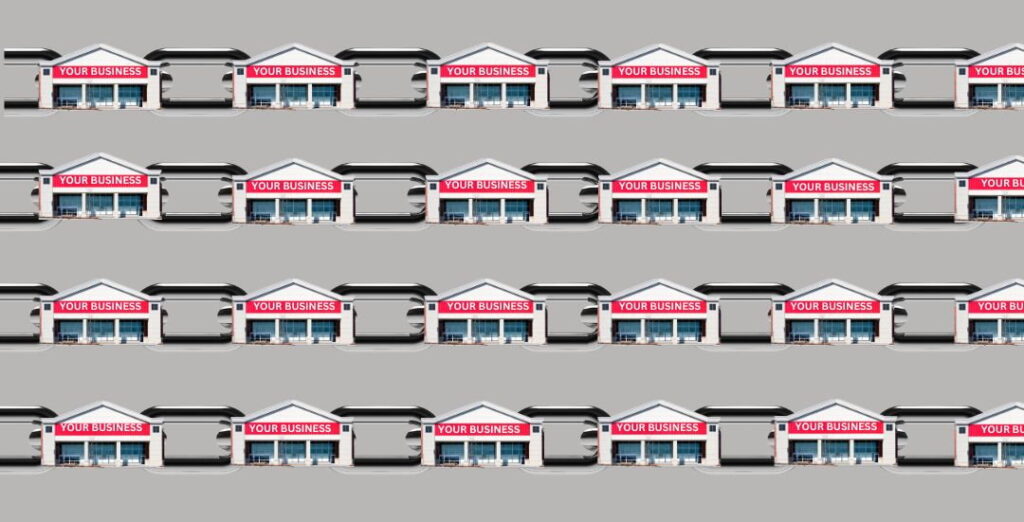
As a business owner, you’re likely always thinking about how to grow. The idea of transforming your business into a chain with locations in different geographical areas and becoming a recognizable brand, excites you and you know you can do it. However, the path to achieving this can seem unclear, daunting and you are just not sure how to get there. So how do you start a chain business? Should you tackle starting or opening more locations yourself or should you be thinking about franchising your business. Well this article aims to guide you through a few essential steps and considerations to help determine which path is right for you when growing your current business into a chain of businesses.
Evaluate Your Business
Before expanding, it’s important to evaluate your current business. There are many things to think about when wanting to grow to multiple locations. Ask yourself these key questions: Is what you offer unique? Is there a demand for your service or product? Will what your business offers appeal to a wider audience? In other words, will your business work in other geographical areas. Proof of concept is another critical factor; have you demonstrated that your business model works? You can have an idea about a business, but to expand the business into a chain the business needs to be in operation.
Consider the longevity of your business. Will it withstand changes in technology, shifts in consumer preferences or unexpected events like a pandemic? Duplication is another significant consideration. Can your business model be replicated efficiently (take a look some things to think about when wanting to duplicate your business). Finally, be honest with yourself and if you find your business is deficient in an area, then work on shoring it up.
Organic Growth or Franchise
One of the first decisions you’ll need to make is whether to pursue organic growth or franchising. Organic growth is a fancy way of saying company-owned growth or doing it yourself. This path requires substantial time, energy and capital. You will be responsible for everything from finding new markets to start or open your business, hiring and training staff to managing day-to day operations. While this approach allows you to maintain full control over each business, it also demands a significant investment of resources and involves additional risks.
Franchising involves allowing other people (take a look at who are franchisees) to either start or open and operate your business in their area using your name and business model (which includes the methods and processes you have discovered, created and use to run efficiently). This strategy taps into the talents and resources of other people (franchisees), who invest their own money and take on the risks associated with starting, operating and running your business in their market. This means that you would be responsible for training franchisees on the how, what and whys of your business so they can run hire and train their own employees and run daily operations.
Pros and Cons of Organic Growth
The primary advantage of organic growth is you have total control. You retain complete authority over every aspect of your business. So if you want to answer the phones, collect payment and even handle the bookkeeping for each of your businesses then this is for you. Yep, you can have your finger on every aspect of operations (take a look at this article about control freaks). Depending on how you operate these businesses you should see an increase to revenues and all profits go directly to you.
However, organic growth is capital-intensive and time-consuming. You’ll need to invest heavily in each new business, manage a growing number of employees and deal with logistical challenges. The risk is higher because all the financial burden and operational responsibilities fall on you.
Pros and Cons of Franchising
One of the main benefits of franchising is the ability to for you to expand rapidly with less capital investment. Franchisees have a vested interest in the success of their locations, because they have “skin in the game”. This often leads to highly motivated operators who strive to make your businesses successful in their area. Franchisees are responsible for the business and every aspect associated with operating the business (which includes managing employees, controlling costs, customer service, etc.) And let’s not forget about time savings. While your job will be to train franchisees and initially that will be time consuming, soon franchisees become independent in the long run saving you tons of time while your business in humming without your involvement.
A downside of franchising is relinquishing some control over your business (specifically daily operations). While you can set guidelines (each business must strictly adhere to your standards and values ) and provide training; the day-to-day operations of the business are in the hands of franchisees. So you should not be doing their bookkeeping, collecting their payments or answering their phones. You will be teaching franchisees how to do all of that themselves so they can be self-sufficient. Ensuring consistency across all locations can be challenging but you will have controls in place to temper renegades.
Franchisees are entrepreneurs who are using their resources to operate your business and may question or challenge what you have taught them or your ways of doing things. This is not so bad because all of the best well-known franchise systems have grown due to franchise input. So you cannot be afraid of criticism or become defensive when being questioned, but instead welcome the opportunity to make things better. After all the more eyes you have on something, it typically leads to innovation resulting in being a pioneer in the industry.
Get the Right Help
If you decide that organic growth is your path then there are some things you can start doing now. For example you can start by scouting different geographic areas to identify new markets. Work with your current employees to develop them into future managers so they can eventually take over a business in new market. Hone your business processes to ensure they are scalable and efficient. Start setting goals now and devote your time to getting another business open, up and running within the next year.
If franchising is your chosen path to create a chain business, then familiarize yourself with what you will need to do to start franchising. Franchising comes with a set of rules and is regulated to protect the consumer (in this case the franchisee) and to keep you honest. You will need to create a franchise structure outlining responsibilities (the do’s and don’ts) and put together a solid franchise program that hits on all the points in addition to being affordable and attractive.
Transitioning from a single business to a chain business is a significant step that requires careful planning and strategic decision-making. If franchising is the vehicle you choose, then we are here to help you. We are an award-winning franchise development company that will hold your hand, take you thru all the steps to franchise so you can offer franchises all over the United States. We will educate you about franchising, warn you against the problems you could face while franchising and build protections for you within your franchise program to keep you out of trouble and protect your trade secrets. By leveraging our expertise, you can confidently grow your business into a thriving chain, using franchising as the vehicle to achieve your expansion goals.
Whether it be organic growth or franchising, starting a chain business is a journey that requires thoughtful evaluation, strategic decisions and the right support. With the right approach, hard work and integrity you can transform your business into a recognizable brand with locations across multiple regions.
- Is My Business Franchisable?
- When, How and Why Franchise
- Can Any Type of Business be Franchised?
- What does Franchising a Business Involve?
- What Does Franchise Development Services Mean
- What to Look for in a Franchise Development Company
- Start a Restaurant Chain, Learn How to Franchise Your Restaurant




